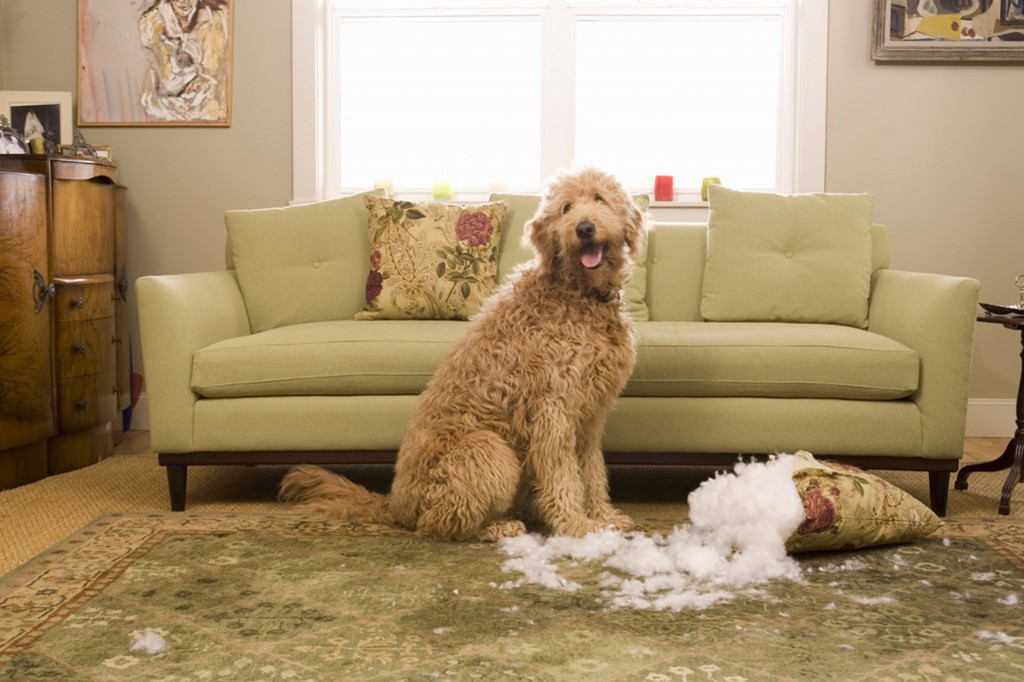(humanesociety.org) How to help with your dog's separation anxiety
If your dog seems to worry when you're heading out, destroys stuff when you leave the house, follows you from room to room when you're home, goes berserk when you come back and seems to be eyeing you suspiciously even before you leave—you may be DEALING with a case of separation anxiety.
Dogs with separation anxiety exhibit distress and behavior problems when they're left alone. Some of the most common ways:
Digging and scratching at doors or windows attempting to reunite with their owners
Destructive chewing
Howling, barking and whining
Urination and defecation (even with otherwise house-trained dogs)
What causes separation anxiety
It's not fully understood why some dogs suffer from separation anxiety and others don't. But remember, your dog's behaviors are part of a panic response. Your dog isn't trying to punish you! They just want you to come home!
These are some of the scenarios that can trigger separation anxiety:
Being left alone for the first time.
Being left alone when accustomed to constant human contact.
Suffering a traumatic event, such as time at a shelter or boarding kennel.
Change in the family's routine or structure, or the loss of a family member or other pet.
How to treat minor separation anxiety
Don't make a big DEAL out of arrivals and departures — ignore your dog for the first few minutes then calmly pet them.
Leave your dog with recently worn clothes that smell like you.
Establish a word or action that you use every time you leave that tells your dog you'll be back.
Consider using an over-the-counter calming product that reduces fearfulness in dogs.
How to handle a more severe problem
Use the techniques outlined above along with desensitization training. Teach your dog the sit-stay and down-stay commands using positive reinforcement. This training will help them learn that they can remain calmly and happily in one place while you go to another room.
Create a "safe place" to limit your dog's ability to be destructive while you’re away. A safe place should:
Confine the dog loosely (a room with a window and toys, not total isolation)
Contain busy toys for distraction
Have dirty laundry to lend a calming scent cue or other safety cues
How to cope while your dog learns to be calm
It can take time for your dog to unlearn their panic response to your departures. To help you and your dog cope in the short term, consider the following interim solutions:
Ask your veterinarian about drug therapy to reduce their overall anxiety.
Take your dog to a doggie daycare facility or kennel when you have to be away.
Leave your dog with a friend, family member or neighbor when you're away.
Take your dog to work with you, if possible.
What won't help
Punishment. Punishment isn't effective for treating separation anxiety and can make the situation worse.
Another dog. Getting your dog a companion usually doesn't help an anxious dog because their anxiety is the result of their separation from you, not just the result of being alone.
Crating. Your dog will still engage in anxiety responses inside a crate, and they may urinate, defecate, howl or even injure themself in an attempt to escape. Instead, create other kinds of "safe places" as described above.
Radio/TV noise. Leaving the radio or television on won't help (unless the radio or TV is used as a safety cue).
Obedience training. While formal training is always a good idea, separation anxiety isn't the result of disobedience or lack of training.
If you need more assistance resolving your dog's issues, consult a professional animal behavior specialist.
I hope these tips are good for you and your pet. Please tell me.
Fuente: www.humanesociety.org
